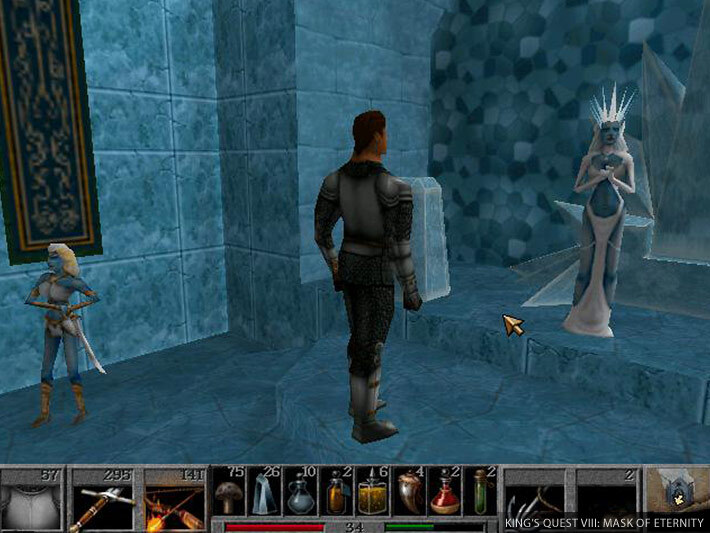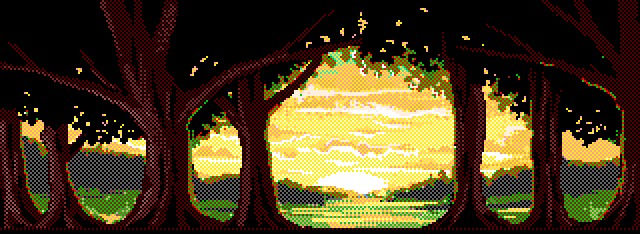The Substance (2024)
This movie opens with the camera fixed on a patch of sidewalk, and stays there for a while. This turns out to be a mission statement from the director: For the next couple of hours we're going to focus on just a handful of people confined to their narrow world, and let the lack of any context reinforce the way those people seem imprisoned and deprived of choice. Then as events unfold, pressure will build, and since this is a horror movie, the inevitable explosion does not demolish the prison walls and set anyone free, it reflects inward at the characters, inflicting maximum carnage.
And you really do feel the rage building, along with the queasy body-horror discomfort of the protagonists making one bad choice after another. The payoff is surreal and stretches credulity but you won't really mind, since the director has been pushing in that direction by degrees, and you get a fun mixture of catharsis, fatalism, and over-the-top gore that I personally can't help calling "Pythonesque", because ... I am old.
Am I being vague about plot details here? You bet. This movie is worth seeing without spoilers. You want something more to go on? Okay, think Darren Aronofsky's "Requiem for a Dream" - that same kind of sick fever-dream intensity - but the addictive focus is on the young female body.
Seven and a half legs clad in jazzy retro leotards up.
Late Night With The Devil (2023)
This is a scrappy, stagey film that tries to mash together the "found footage" and the "fake documentary" forms of horror. The result is a poor version of both: The footage that was found is supposedly from in-studio magnetic tape recordings of live television broadcast in 1977, and even though it's been run through some nice modern effects processing to bake the colors and add fake distortion, it's too clear and deals with studio lights too well to be from that era. (And it's in stereo...) Meanwhile the documentary claims to present "behind the scenes footage" taken at the same time, but there is no reason given for why the cameras are rolling, let alone why there are two or three of them to catch both sides of a whispered conversation across a room.
But you know what? Who cares? After a while you realize you're being presented with something so unique, and made with such enthusiasm, that you embrace the forms anyway. And you start rooting for both the characters and the movie itself to make good on the level of weirdness that they seem to be building to.
In the end you get some over-ambitious misdirection similar to - of all things - The Blair Witch Project 2, plus a finale that goes completely off the rails at the same time it tries to tie everything together, and maybe you knew it was going to let you down just a bit, but you're glad you saw it.
Shout-outs to Ingrid Torelli for playing a lunatic with such a hilarious combination of grace and menace, and David Dastmalchian for finding a heart in a character that doesn't really have one on paper. The story wouldn't work at all otherwise.
Six hilariously retro title cards up out of ten.
Gretel and Hansel (2020)
This movie has a ton of atmosphere, and that's why I wanted to backtrack and see it. The trailer makes it clear that the story happens in a pastiche world, assembled from parts, and I was looking forward to how all those choices were knit together into a coherent vision. For example, you get modern Scandinavian architecture combined with interior decoration from a hundred years earlier, combined with furniture a hundred years before that, combined with tools from five centuries ago, all populated by characters wearing clothing that mixes customs from that whole timespan, and who speak modern English. Hey, if it all works, who cares?
The trouble is, it doesn't. The selections seem arbitrary rather than meaningful. The atmosphere of the movie is also tampered with by on-again off-again narration from the main character, forcing a sense of detachment into scenes that should feel intimate and immediate. In the end I had to wonder if all of the narration, including the opening monologue that explains the story, was bolted on later, when test audiences watched the relatively quiet version and griped that they couldn't understand a damn thing they were seeing. If I could, I would erase the memory of the film from my head and watch it again with the sound off, to see if the most important part of it - the atmosphere - was preserved enough for the pieces to cohere.
I'm not describing the plot. It's there in the title, yeah? The ending is a little different. I dunno, watch it I guess? Alice Krige is in it, and is great fun. Sophia Lillis is the new modern hotness so that's a plus.
Five out of ten suspicious witchy fake foodstuffs up.
Sputnik (2020)
This movie was robbed of its planned theatrical release by COVID-19. When I saw the trailer for it a year later, I thought it looked good enough to get another try at the Western box office. That chance evaporated when Russia invaded Ukraine.
Which is unfortunate, because the movie is set in 1983, during the days of the USSR, and the former Soviet Union is looming relatively large in the world consciousness. Also, slow-burn horror films with ideas much bigger than their budgets have become quite popular in these lingering pandemic post-traumatic-stress times. Combine that with a creepy institutional setting, some gooey alien effects, and some 80's space program nostalgia, and you've got a movie that seems right for the times. And, one I am guaranteed to watch.
So I did, and it was good, but in retrospect I've had to revise my ideas about that scrubbed theatrical run. Western audiences would not have embraced it at the time, and a very late streaming release was a kindness. Moviegoers would walk in expecting a story focused squarely on the mystery of the alien, and instead they would find a story split equally between two things: The alien, and the way the communist bureaucracy of the USSR twisted everything, across politics, science, criminal justice, the military, and so on. The plot is a tangled web of threats to involve authorities, lie to authorities, helplessly obey orders, secretly defy orders, conduct surveillance, evade surveillance, fabricate evidence, hide evidence, threaten to release evidence, et cetera. A crushing weight of bleakness permeates every frame and word of the movie, and it's no mistake that the only time you see a character smile and laugh, even for a second, is when that one character is as far away from the party headquarters as they can possibly be: In orbit. And even then, only in the brief moment when the radio is off. When it comes back on, and Moscow is listening again, it's back to the mandatory stoicism.
That social setting is what makes the movie worthwhile, to me. I could find better creature effects, more action, tenser atmosphere, and more complex ideas elsewhere in better movies. But here is something unique: We're not just meeting an alien. We're meeting some people trapped in a completely inflexible and all-encompassing bureaucracy, and seeing how they deal with something as mysterious and impossible as an alien. There's a kind of car-crash fascination in that. Oh, and the music is pretty good too.
With that angle in mind, give this one a try. I give it five-and-a-half ancient TV antennas up out of ten.
Smile (2022)
All the way through this movie I was reminded of two other movies: "Fallen", from way back in 1998, about an evil being that hops invisibly between victims to cheat death, and "Oculus", about a mirror that is so demonic it can take control of the people who gaze into it and then completely rewrite their recent memories to hide what it's been up to.
This movie borrows ideas from those and other movies, and though it's oh-so-very atmospheric, it doesn't manage to turn the borrowing into a theft by making something better. The one category where I saw real novelty was the sound design. It's amazing. The composer and effects mixers must have been given a very free hand by the director, because they often scramble or deconstruct the environmental sounds and even the dialogue to create a feeling of disconnection and unreality. I was happily reminded of pioneering noise artists from the 90's like Nigel Ayers, Randy Greif, and F.M. Einheit.
So, does the sound and atmosphere justify a watch? I honestly can't decide. A sequel is out this year, and by all accounts it's a better movie. If you can follow it without needing the context of the first, you might want to just skip ahead. If you want to watch the first without spoilers, then stop reading after the next line, because I've got to spoil it to explain why I'm so ambivalent.
Five easily-grabbed very sharp random household items up, out of 10.
It's the monster. It makes no sense. It's a thing that haunts people, latching onto them and tormenting them until they die in front of someone else, thereby traumatizing the observer and allowing the thing to jump to a new victim. Is the monster trauma itself? No, it has too much personality for that. It talks, it finds creative ways to cause pain, it has its own motivation to survive. So it's some kind of demon or spirit? Yes; no... Maybe. Does it take physical form? It seems to, through most of the movie, until we backtrack and realize that everything it does could conceivably be either a hallucination, or an act done unconsciously by the victim and then erased from their memory. So it does ... until it never did. We see a person walk into a room, sit down, talk, and then suddenly it was all a dream. We see the protagonist walk into a building and stab someone, but then suddenly she's back in her car and it was all a dream. Entire conversations, journeys, even deaths, happen and then get retconned out of existence.
In the end the long edits and fake-outs become too much, and we stop being able to know what’s hallucination and what’s actual plot. And you could argue that’s the point, but it unquestionably weakens the film: If other people die or make tearful confessions or learn things and those scenes turn out to be fake, it becomes very difficult to follow what any of those people are thinking scene to scene. So the lives of the supporting characters turn hollow in the same way the life of the protagonist does. In the end, she hallucinates an entire end to the film, including half a dozen scenes that cover nearly two days of time. Then, rug pull! Oh gosh! It was all a lie.
By doing this, the movie is trying to give us two resolutions. A positive one that feels too easy, then a “real” one that’s too straightforward to be interesting. And in delivering that, it tears the narrative in half. What really happened? Who the hell knows. Maybe the point is that people who struggle with trauma can never be sure, so we the viewer should not be sure either. So okay, point made, but then, what am I watching?
Also, as an aside, Jessie T. Usher is so good at playing crappy boyfriends that there should be some kind of special acting award for that, and he should get it. Or maybe present it?
Oddity (2024)
Apparently this movie got a lot of festival buzz, for being fun to watch in a crowd, and for a shrewd marketing campaign that involved distributing lots of swag featuring a prop central to the plot: A massive wooden doll with a mouth open in a permanent scream.
It's the Chekhov's Gun of horror artifacts, and as soon as you see it sitting there, you begin wondering when, not if, it's going to do something terrible. This is ruthlessly encouraged by the director, who frames it like a character that can listen and speak in every scene where it's present.
Alas, I did not watch this in a crowd, so I can only assume the rote jump-scares and the tense, disjointed dialogue between various unsympathetic characters plays a lot better with other willing participants around who are predisposed to having a good time. The camerawork is excellent - a wonderful example of using framing and motion as a form of dialogue, building and sustaining tension - but as the credits rolled I felt a bit let down. "Aww, man. That's it?" I said to the screen. Tension wasn't the problem. It was characters, and plot. None if it held up to close examination.
It sounds like I'm not recommending this movie, but honestly I am. I just came in with different expectations. The relationship between that crazy central prop and its owner has some really interesting allegorical meaning, and you can spend the time between jump scares pondering that, which combined with the very confident direction makes it worth your time to set the lights low and cue this up. Or if you're lucky, catch it in a theatrical setting, with other people to share the tension.
Six and a half out of 10 strangely loud digital cameras up.
There follows a paragraph of spoilers, wherein I ask some awkward plot questions. Skip it if you intend to watch the movie.
So, supposedly Darcy came to the house knowing that the orderly killed her sister, but not the real reason why. It's implied that she only put the full puzzle together once she got ahold of some physical item belonging to Declan. But if she didn't suspect him, why did she go to the house in the first place? It would have made perfect sense for her to just send the creature after the orderly. It's already clear that the creature has no problem traveling long distances and breaking into places, since she used it to kill Olin. On the other hand, why could she even get to Olin? Shouldn't he be in prison, if the evidence of murder was that strong against him? But whatever: Now she's at the house, and she knows everything. Supposedly she's touched Yana's keys and knows she's innocent. Supposedly her sister's ghost is still around, and present enough to warn Yana multiple times to leave. So why doesn't the ghost warn Darcy that she's about to plummet to her death through a bonehead-obvious trap door? The ghost cares about Yana - the "other woman" - enough to yell at her, but not a peep for her dearly beloved sister? And, you have to be really blind and really deaf not to see a trap door being opened right in front of you. If her senses are that bad, how did she locate the keys or the ring, or even get upstairs? Magical but disastrously selective psychic spidey-sense? Also, in a mental health system modern enough to feature smartphones, there should be some kind of electronic security, yes? If so, how did the patient escape? Or, if the orderly smuggled him out and took him to the house in order to frame him, why wasn't he observed? If the patient went there on his own, why didn't he just tell Dani she was about to be murdered and how he knew? Sure, crazy people be crazy, but that's a poor excuse for someone who's got the foresight to leave and find Dani, and the mental capacity to navigate to a country house at night with no map or phone.


 I was a kid, about 16 years old. I emerged from some kind of teleportation device in the living room of the family home. Previously I had just been outside another house, several miles away, and seen a huge redwood tree fall over. It might have hit a building nearby but I wasn’t sure.
I was a kid, about 16 years old. I emerged from some kind of teleportation device in the living room of the family home. Previously I had just been outside another house, several miles away, and seen a huge redwood tree fall over. It might have hit a building nearby but I wasn’t sure. Seven years is probably too long to wait for the exercise to really be useful, but I’m doing it anyway since I have a few thoughts.
Seven years is probably too long to wait for the exercise to really be useful, but I’m doing it anyway since I have a few thoughts. [00:54:47.97] "I'm in a little bit of trouble. Oh yeah." (gibberish) (slurping) "Why isn't he dying? What is he eating in my ear?"
[00:54:47.97] "I'm in a little bit of trouble. Oh yeah." (gibberish) (slurping) "Why isn't he dying? What is he eating in my ear?" Search engines used to take in a question and then direct the user to some external data source most relevant to the answer.
Search engines used to take in a question and then direct the user to some external data source most relevant to the answer. Two months ago I ended the longest stretch of unemployment - by far - that I've experienced in 30 years.
Two months ago I ended the longest stretch of unemployment - by far - that I've experienced in 30 years. In
In  People learning about evolution sometimes ask, "Why aren't animals immortal?" The answer is, the world keeps changing, and life needs to create new bodies to deal with it. What we really want when we ask for immortality is one constantly renewing body, running all the amazing interconnected systems that we're used to, and that convince us we are alive from one day to the next, without interruption. ... Well, except for sleep, which is a weird exception we have decided to embrace, since going without sleep really sucks.
People learning about evolution sometimes ask, "Why aren't animals immortal?" The answer is, the world keeps changing, and life needs to create new bodies to deal with it. What we really want when we ask for immortality is one constantly renewing body, running all the amazing interconnected systems that we're used to, and that convince us we are alive from one day to the next, without interruption. ... Well, except for sleep, which is a weird exception we have decided to embrace, since going without sleep really sucks. As a sort of last hurrah before my work schedule gets intense again, I played my way through
As a sort of last hurrah before my work schedule gets intense again, I played my way through 





 Then I realized, the only way to frame an answer is by considering the act of programming within the act of communicating via language, which is something humans have been doing in very complex forms since there were humans, and in less complex forms before that.
Then I realized, the only way to frame an answer is by considering the act of programming within the act of communicating via language, which is something humans have been doing in very complex forms since there were humans, and in less complex forms before that. The Watchers
The Watchers Wicked Little Letters
Wicked Little Letters Many words have been spilled about this game's legendary ability to compel players to take "just one more turn." I've spilled many myself, and instead of spilling more, I will point you to the essays I wrote, each more elaborate than the last:
Many words have been spilled about this game's legendary ability to compel players to take "just one more turn." I've spilled many myself, and instead of spilling more, I will point you to the essays I wrote, each more elaborate than the last:  These games take the fundamental weirdness of Dungeons And Dragons mythology and put it front and center, primarily through the colorful, playful artwork.
These games take the fundamental weirdness of Dungeons And Dragons mythology and put it front and center, primarily through the colorful, playful artwork.